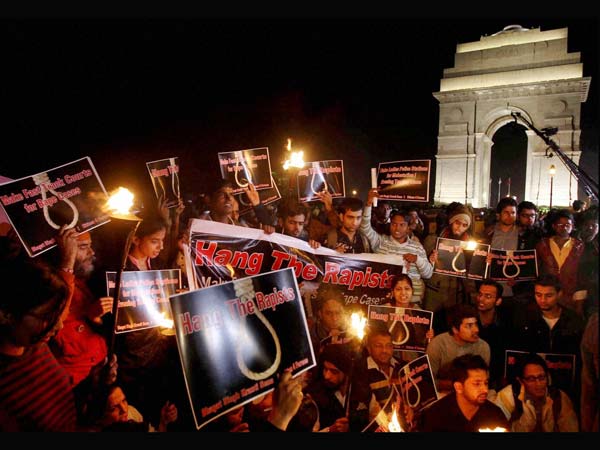Anti-Rape Legislation in India: The Name Game
Should the Delhi rape victim's name be revealed? At least, for the purpose of honouring her (with her parents consent) by naming revised anti-rape legislation after her, as Union Minister of State for HRD, Shashi Tharoor has suggested.
The
issue
is
substantially
more
complicated.
The
Indian
media
has
been
admirably
restrained
so
far
by
not
revealing
the
names
of
the
victim
or
her
companion.
Instead,
she
has
been
given
different
names
like
Nirbhaya,
Damini
and
Amanat
to
describe
her
fighting
spirit.
But
the
media
has
also
twisted
Tharoor's
tweets
as
if
he
were
interested
in
making
public
her
name,
thus
causing
needless
controversy.
[Read:
Controversy
and
an
act
of
empty
symbolism
over
Delhi
Gangrape
victim's
name]

A more diligent media would have instead focused on what inspired Tharoor to make this suggestion. His inspiration comes from United States where names are often attached to laws, especially to add a poignant human angle to legislative changes. [Read: Why Tharoor's tweet was twisted?]
Indian conditions are different
But this little media episode demonstrates a key lesson on why it's better for India to refrain from going down the path of honouring the victim by naming the bill after her. Naming this victim potentially gives a license to name other rape victims and that can cause incalculable damage to victims and their families in an India where values are in flux and rape-related stigma is cruelly real.
Further, it is quite likely that we will get into political wars over the naming of future bills and parties that thrive on symbolic huffing and puffing rather than concrete content would just divert attention from the actual work that needs to be done and probably hold up parliament over such non-issues.
Various commentators refer to Megan's Law, named after a child killed by a released sex offender, as an example of how the USA names laws. In the USA, numerous other laws are named after the legislators who promote them. But in the American context, unlike in India, there is tremendous scope for individual Congresspersons and Senators to initiate and pass legislation.
Too many risks
Megan's Law itself is part of a set of initiatives involving naming and shaming, which has also been raised in India as a policy option after the recent Delhi tragedy. The recently deceased News of the World tried to launch a campaign for a Megan's Law-type bill in the UK. This media campaign resulted in attacks on people who resembled the perpetrators of crimes and also triggered violent vigilante attacks. Such outcomes may satiate the anger and passions of mobs but certainly do not strengthen the rule of law.
In a decade-old book chapter, I had examined the political and media processes that led to the passage of Megan's Law and similar laws across the USA using the Social Amplification of Risk framework. I emphasized the importance of politics and contrasted the American experience with how the British dealt with the News of the World campaign. The British were suitably restrained, appropriately so. Based on those experiences, I would assert that it's better to retain the anonymity of victims (and possibly perpetrators too) and focus instead on the harder tasks of changing societal attitudes and improving governance to prevent such crimes from ever taking place.
Otherwise, the collateral damage from name-related moves can be substantial. The twisting of Tharoor's well-intentioned tweets is just a hint of how counterproductive things can get.
About the Author: Rajeev Gowda is a Professor of Economics and Social Sciences and Chairperson, Centre for Public Policy at the Indian Institute of Management, Bangalore.


 Click it and Unblock the Notifications
Click it and Unblock the Notifications


































